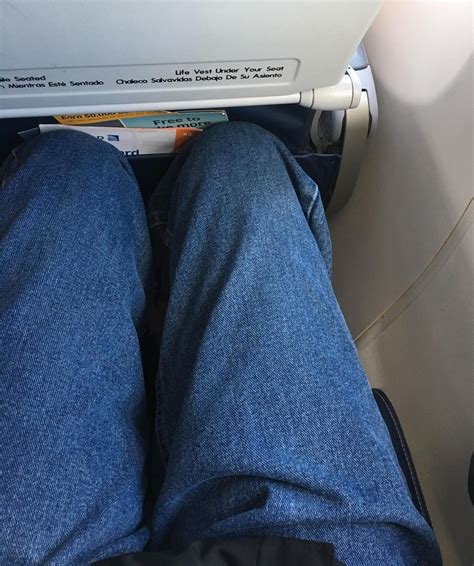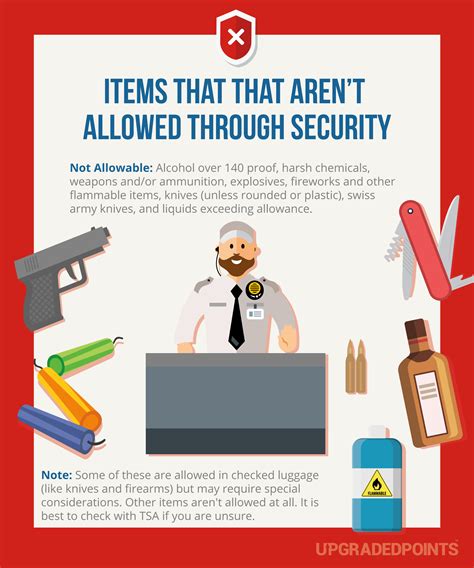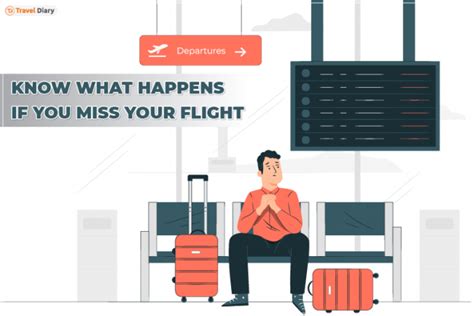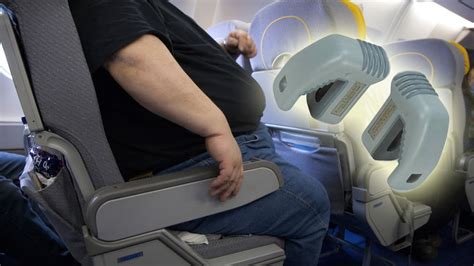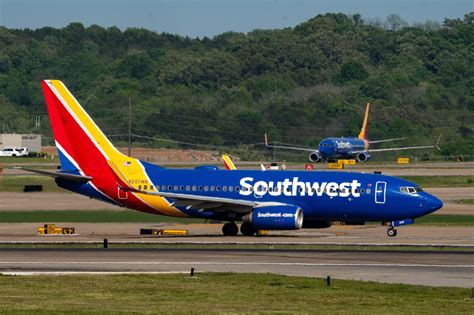
Southwest Airlines is facing a storm of passenger criticism after quietly rolling out a revised boarding policy that prioritizes passengers who pay extra for “EarlyBird Check-In,” effectively diminishing the benefits for those who previously secured better boarding positions through strategic check-in times. The change, which impacts the airline’s unique open-seating arrangement, has sparked outrage among travelers who feel the unannounced shift undermines the fairness and predictability of the Southwest boarding process.
The airline’s long-standing boarding system, where passengers are assigned boarding positions based on check-in time (within 24 hours of departure), has been a key differentiator. Southwest does not offer assigned seating; instead, passengers choose their seats on a first-come, first-served basis after boarding the aircraft. This system incentivized passengers to check in promptly at the 24-hour mark to secure a coveted A boarding group position, guaranteeing a wider selection of seats. However, the updated policy seemingly allows more passengers with “EarlyBird Check-In,” a paid option, to board ahead of those who diligently checked in exactly 24 hours before departure but did not pay extra, resulting in fewer desirable seating options for those who didn’t purchase the add-on.
“Southwest quietly rolled out a change that makes it harder to get a good boarding position without paying extra,” reported Yahoo! Finance. The shift directly affects the core of Southwest’s appeal, a system once praised for its perceived fairness and lack of change fees, setting it apart from competitors who charge for seat assignments or early boarding.
Passengers have taken to social media platforms, like X (formerly Twitter), to express their frustration and disappointment. Many feel misled by Southwest, accusing the airline of prioritizing revenue over customer loyalty and transparency. Some passengers have reported diligently setting alarms to check in right at the 24-hour mark, only to find themselves in the B or C boarding groups, a stark contrast to their previous experiences. “I used to get A group all the time by checking in right at 24 hours before,” one disgruntled passenger wrote on X. “Now I’m consistently B or C. It’s clearly a money grab.”
The complaints highlight a growing sense of distrust towards the airline, with many passengers questioning Southwest’s commitment to its original values. The lack of official communication about the policy change has further fueled the backlash, leaving passengers feeling blindsided and ignored.
Southwest Airlines has responded to the criticism by emphasizing that EarlyBird Check-In has always been a part of their boarding process and that the recent adjustments are aimed at optimizing the overall boarding experience. However, this explanation has done little to quell the anger of passengers who feel that the changes significantly alter the competitive landscape of the boarding process.
“We haven’t made changes to EarlyBird Check-In itself,” a Southwest Airlines spokesperson stated. “The number of EarlyBird Check-In customers varies by flight, and this could influence boarding positions.” The airline maintains that the fluctuations in boarding positions are due to the varying number of passengers purchasing EarlyBird Check-In on different flights. However, passengers argue that the frequency with which they are now being assigned lower boarding positions suggests a more systemic change rather than mere statistical variance.
The controversy also raises broader questions about the evolution of airline pricing strategies and the increasing emphasis on ancillary revenue. As airlines face rising operational costs and intense competition, they are increasingly relying on fees for services that were once included in the base fare, such as baggage, seat selection, and now, seemingly, a guaranteed good boarding position on Southwest.
The situation puts Southwest in a delicate position. The airline has built its brand on customer-friendliness and transparent pricing. Alienating its loyal customer base with perceived hidden fees or unfair practices could have long-term consequences for its reputation and market share. The airline must now address the concerns of its passengers and communicate its boarding policies more clearly to avoid further erosion of trust.
The altered boarding policy potentially impacts a wide range of travelers, including families traveling together, business travelers with tight schedules, and passengers with disabilities who require specific seating accommodations. These groups often rely on securing early boarding positions to ensure they can sit together, have access to overhead bin space, or receive the assistance they need. The new policy makes it more difficult and potentially more expensive for these passengers to secure the boarding positions they require.
The move could also have unintended consequences for the overall boarding process. As more passengers feel compelled to purchase EarlyBird Check-In to guarantee a decent boarding position, the number of passengers in the A boarding group could increase, leading to longer boarding times and increased congestion in the aisles. This could ultimately negate any perceived efficiency gains from the policy change.
The long-term effects of this change on Southwest’s brand perception remain to be seen. The airline has cultivated a loyal following by offering a unique travel experience centered around flexibility, affordability, and customer service. If passengers feel that these values are being compromised, they may be more likely to consider alternative airlines, potentially eroding Southwest’s competitive advantage.
Furthermore, this issue underscores the broader debate surrounding transparency in airline pricing and the need for clearer communication of policies and fees. Passengers are increasingly frustrated by the complex and often opaque pricing structures employed by airlines, which can make it difficult to compare fares and understand the true cost of travel. Airlines need to be more proactive in disclosing all fees and policies upfront to avoid misleading or surprising passengers.
In the immediate term, Southwest faces the challenge of managing the negative publicity surrounding the boarding policy change and addressing the concerns of its disgruntled passengers. The airline needs to engage in open and honest communication, explaining the rationale behind the policy and addressing the specific concerns raised by travelers. It may also need to consider making adjustments to the policy to mitigate its negative impact on passengers who do not purchase EarlyBird Check-In.
The Southwest boarding controversy serves as a cautionary tale for other airlines considering similar changes to their policies. It highlights the importance of transparency, customer communication, and a deep understanding of the impact of policy changes on the customer experience. Airlines must carefully weigh the potential revenue gains from ancillary fees against the risk of alienating their customer base and damaging their brand reputation.
The incident might also prompt regulatory scrutiny. Consumer advocacy groups and government agencies may take a closer look at airline pricing practices and policies to ensure that they are fair, transparent, and do not mislead consumers. Increased regulatory oversight could lead to stricter rules on fee disclosure and other consumer protections.
Ultimately, the success of any airline policy hinges on its ability to balance the needs of the business with the needs of its customers. Airlines that prioritize short-term revenue gains over long-term customer loyalty risk damaging their brand reputation and losing market share. Southwest, in particular, built its reputation on a customer-centric approach, and its ability to navigate this controversy will be a critical test of its commitment to those values.
The backlash against the new boarding policy also highlights the power of social media in shaping public perception of airlines. Passengers are increasingly using social media platforms to share their experiences, voice their complaints, and hold airlines accountable. Airlines need to be responsive to social media feedback and address passenger concerns promptly and effectively. Failure to do so can result in widespread negative publicity and damage to their brand image.
The change to the boarding policy comes at a time when airlines are already facing increased scrutiny over issues such as flight delays, cancellations, and customer service. The added frustration over boarding procedures only exacerbates the negative sentiment towards the industry as a whole. Airlines need to focus on improving all aspects of the travel experience, from booking and check-in to boarding and in-flight service, to restore passenger confidence and loyalty.
The situation also provides an opportunity for competing airlines to capitalize on Southwest’s misfortune. Airlines that offer clear and transparent pricing, reliable service, and a positive customer experience may be able to attract passengers who are disillusioned with Southwest’s new boarding policy. The airline industry is highly competitive, and airlines that consistently deliver value and customer satisfaction are more likely to succeed in the long run.
Furthermore, the controversy underscores the importance of clearly defining the terms and conditions of ancillary services. Passengers need to understand exactly what they are paying for when they purchase add-ons such as EarlyBird Check-In, and airlines need to ensure that these services deliver the promised benefits. Vague or misleading descriptions of ancillary services can lead to customer dissatisfaction and damage the airline’s reputation.
In the wake of the passenger backlash, Southwest may need to consider offering alternative solutions to address the issues raised by the boarding policy change. This could include offering more transparency in the boarding process, providing more options for passengers to secure early boarding positions without paying extra, or reevaluating the overall structure of the boarding system. The key is to find a solution that balances the airline’s revenue goals with the needs and expectations of its customers.
The controversy also brings into focus the impact of technological advancements on the airline industry. Online check-in, mobile boarding passes, and other digital tools have made it easier for passengers to manage their travel arrangements. However, these technologies have also created new opportunities for airlines to implement complex pricing and boarding strategies. Airlines need to ensure that these technologies are used to enhance the customer experience, not to exploit passengers or mislead them about the true cost of travel.
The change might further accelerate the trend of passengers seeking elite status within loyalty programs. As it becomes increasingly difficult to secure favorable boarding positions without paying extra, passengers may be more inclined to pursue elite status in order to gain access to priority boarding and other perks. This could lead to increased competition for elite status and further segmentation of the passenger base.
The ongoing debate surrounding Southwest’s boarding policy highlights the inherent challenges of balancing revenue optimization with customer satisfaction in the airline industry. Airlines are constantly seeking ways to increase profitability, but they must also be mindful of the impact of their decisions on the customer experience. Finding the right balance requires careful consideration of all stakeholders and a commitment to transparency and fairness.
The future of Southwest’s boarding policy remains uncertain. The airline may choose to stand its ground and weather the storm of criticism, or it may decide to make adjustments to appease its disgruntled passengers. Ultimately, the success of the policy will depend on its ability to deliver a positive experience for all passengers, regardless of whether they choose to pay extra for EarlyBird Check-In. The situation underscores the importance of continuous monitoring of customer feedback and a willingness to adapt policies as needed to meet changing customer expectations. Southwest’s response to this crisis will likely shape its reputation and influence its competitive position in the airline industry for years to come. The airline must act decisively and transparently to regain the trust of its passengers and reaffirm its commitment to its core values.
Frequently Asked Questions (FAQ) about Southwest Airlines’ Boarding Policy Change:
-
What is Southwest’s new boarding policy?
- Southwest has quietly adjusted its boarding process, seemingly prioritizing passengers who purchase “EarlyBird Check-In” ahead of those who check in exactly 24 hours before their flight but do not pay extra. This means that even passengers who check in promptly at the 24-hour mark may find themselves in lower boarding groups (B or C) than before, reducing their chances of securing preferred seating. “Southwest quietly rolled out a change that makes it harder to get a good boarding position without paying extra,” according to Yahoo! Finance.
-
Why are passengers upset about this change?
- Passengers feel misled and believe Southwest is prioritizing revenue over customer loyalty. They argue the change undermines the perceived fairness of Southwest’s open-seating system, where early check-in used to guarantee a better boarding position. Many feel they are now forced to pay extra for “EarlyBird Check-In” to avoid being stuck with undesirable seats. Passengers are expressing their frustration on social media, accusing the airline of a “money grab” and a departure from its customer-friendly values.
-
What does Southwest say about the policy change?
- Southwest maintains that EarlyBird Check-In has always been a part of their boarding process. A spokesperson stated, “We haven’t made changes to EarlyBird Check-In itself… The number of EarlyBird Check-In customers varies by flight, and this could influence boarding positions.” The airline claims that fluctuations in boarding positions are simply due to the varying number of passengers purchasing EarlyBird Check-In on different flights.
-
How does EarlyBird Check-In work?
- EarlyBird Check-In is a paid add-on that automatically checks passengers in for their flight 36 hours before departure. This guarantees them an earlier boarding position than those who check in manually within the standard 24-hour window. The price of EarlyBird Check-In varies depending on the flight and demand.
-
What can passengers do if they are unhappy with the new boarding policy?
- Passengers who are unhappy with the policy can express their concerns directly to Southwest Airlines through customer service channels, social media, or by filing a complaint. They can also consider alternatives such as purchasing EarlyBird Check-In if they prioritize a good boarding position or exploring other airlines that offer assigned seating or different boarding procedures. Another option is to obtain A-List or A-List Preferred status, which includes priority boarding.






